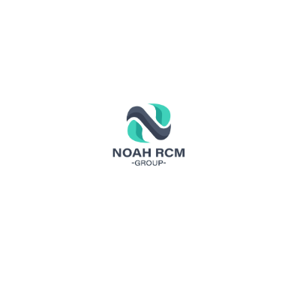In today’s competitive healthcare landscape, medical providers face increasing financial and operational pressures. Specialized solutions like orthopedic revenue cycle management are transforming how healthcare providers handle their administrative and billing workflows. This approach focuses on the unique needs of orthopedic practices, ensuring that claims are processed accurately, reimbursements are received faster, and denials are minimized. By implementing specialized systems, orthopedic clinics can improve cash flow, reduce administrative burdens, and allow physicians to focus on delivering exceptional patient care.
The Importance of RCM Services for Small Medical Practices
For small and mid-sized healthcare facilities, RCM services for small medical practices can be a game changer. These services handle everything from patient registration and insurance verification to coding, billing, and collections. Smaller practices often struggle with limited staff and resources, making it challenging to keep up with changing regulations and payer requirements. Outsourcing RCM functions to specialized service providers allows these practices to maintain compliance, optimize reimbursements, and enhance their financial stability without investing heavily in in-house billing teams.
Why You Should Outsource Medical Billing Services
One of the most effective strategies for improving operational efficiency is to outsource medical billing services. Outsourcing allows healthcare providers to leverage the expertise of professional billing companies that stay up to date with complex coding changes, payer rules, and compliance regulations. This not only reduces costly errors but also shortens the payment cycle. Additionally, outsourcing helps practices allocate more time and resources to patient care rather than administrative tasks, leading to increased patient satisfaction and overall practice growth.
The Role of Advanced Healthcare Billing Systems
Modern healthcare billing systems have revolutionized the way medical practices manage their revenue cycles. These systems offer automated claim submissions, real-time eligibility checks, and integrated payment processing, which significantly reduces manual errors and delays. By adopting robust billing technology, practices can track performance metrics, identify bottlenecks, and implement data-driven improvements. Whether in large hospitals or small clinics, advanced billing systems are essential tools for boosting revenue while ensuring compliance with healthcare regulations.
Overcoming Common Revenue Cycle Challenges
Revenue cycle challenges are common across the healthcare sector, from delayed reimbursements to denied claims. Many of these challenges stem from incorrect coding, incomplete documentation, or slow follow-up on unpaid claims. Partnering with experienced RCM providers like NoahRCM ensures that these challenges are addressed proactively. Their expertise in navigating payer requirements, monitoring claim status, and implementing efficient billing processes can help reduce revenue leakage and improve the financial health of a practice.
Benefits of Streamlined Medical Billing Workflows
Streamlining medical billing workflows leads to multiple benefits, including reduced administrative workload, faster payments, and improved accuracy. Centralized billing platforms, standardized coding practices, and continuous staff training play a crucial role in maintaining efficiency. Practices that invest in optimizing their billing workflows experience higher revenue capture rates and fewer compliance issues, ensuring a steady cash flow and better resource allocation.
The Impact of Regulatory Compliance on Revenue
Maintaining compliance with healthcare regulations is not just about avoiding penalties—it directly impacts revenue. Changes in insurance policies, coding updates, and new billing rules can quickly affect reimbursements if not managed properly. Compliance-focused RCM strategies ensure that documentation, coding, and billing meet all regulatory standards, preventing costly mistakes and supporting long-term financial stability.
Future Trends in Medical Revenue Cycle Management
The future of revenue cycle management is being shaped by AI, automation, and data analytics. Predictive analytics can forecast payment trends, identify potential claim denials, and recommend process improvements before revenue is lost. Automation reduces repetitive tasks such as claim submission and payment posting, while AI-powered tools assist with coding accuracy and compliance checks. These innovations are set to make revenue cycle management more efficient, accurate, and cost-effective in the years ahead.
Final Thoughts
In an era where financial performance directly affects patient care quality, adopting specialized revenue cycle management solutions is no longer optional—it’s essential. Whether it’s through orthopedic revenue cycle management, RCM services tailored for small practices, outsourcing billing tasks, or implementing advanced billing systems, healthcare providers can significantly improve efficiency and profitability. By partnering with experienced service providers like NoahRCM, medical practices can focus on their core mission—delivering exceptional healthcare—while ensuring their financial operations remain strong and sustainable.


Write a comment ...